When their salaries are not enough to cover their living expenses, they are forced to work extra, facing economic pressure and the risk of gradually losing their passion for teaching. The story of income is not just about “bread and butter”, but also has a direct impact on the quality of education and the level of teachers’ attachment to the profession.
Left hand profession supports right hand profession
In addition to teaching, Ms. Nguyen Thi Thu Ba - Chu Van An Primary Boarding School (Tra Tap, Da Nang ), also has a part-time job selling medicinal products from Tra My mountain forest such as Ngoc Linh ginseng, wild honey, Gynostemma pentaphyllum tea... and Youth Union uniforms.
Ms. Thu Ba shared: “When I first joined the staff, the salary was low, my children were still young; teaching in a mountainous area, I could not think of tutoring to earn income. Selling online helped me have more money to buy milk and improve meals for my children. As of 2022, when the salary had not been increased, with a salary of 9 million VND/month after 13 years of teaching, to be honest, without income from online sales, it would be very difficult to accumulate, even not enough to live on.”
Teachers who earn extra income from a side job like Ms. Thu Ba are using their side job to nurture their passion for their main job, leaving behind the worries of making a living behind the classroom door, and wholeheartedly devoting themselves to each lesson.
For teacher Tran Thi Hue (born in 1990, in Kim Lu village, Dong Le commune, Quang Tri province), the path to becoming a teacher was not smooth. She graduated in 2013, but it was not until 2017 that she was accepted to teach at Huong Hoa Primary School (Tuyen Hoa district, former Quang Binh province) under a contract, teaching Information Technology. After that, she continued her contract at Le Hoa Primary School.
After nearly 10 years of teaching, her meager income - only 3-4 million VND per month for a contract teacher - has made her family's life always difficult, lacking everything. Her husband is a mechanic, her three children are still young, the oldest is in 4th grade, the youngest is just over 1 year old.
Ms. Hue said that in order to have more income to cover the family's living expenses, in recent years, in addition to teaching hours, she has had to sell goods online, raise chickens, and grow vegetables to have more "income and outflow", sharing the economic burden with her husband.
“With a modest income from this profession, I have often thought about quitting the profession. But every time I imagine having to leave school and no longer being able to interact with and answer the curious and eager questions of my students every day, I push that thought aside and continue to stick with the teaching profession. I just hope that the profession will not let down my efforts and dedication,” Ms. Hue shared.
At the beginning of the 2025-2026 school year, she was accepted to teach at Dong Le Primary School No. 1 under a contract under Decree 111/2022 of the Government. She sees this as a new step on the journey to becoming a real teacher, with the hope of soon easing her worries about food and clothing, and confidently dedicating herself to her profession.
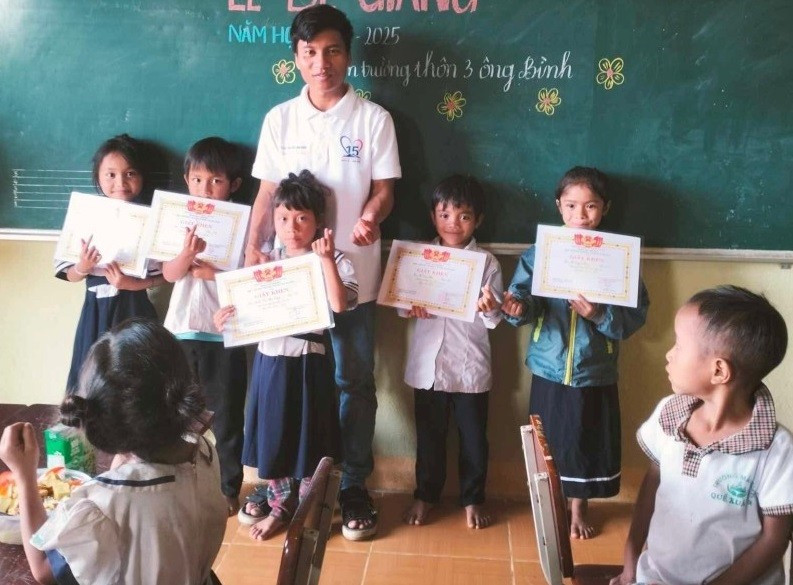
"Anchoring" back to the profession
Mr. Nguyen Van Nhan started teaching on contract at Tra Don Primary Boarding School for Ethnic Minorities, Nam Tra My mountainous district (Quang Nam), now Tra Leng 1 Primary Boarding School for Ethnic Minorities (Da Nang City), from 2019 to present. His starting salary was less than 4 million VND/month, then adjusted to 6 million VND/month.
While teaching, he also took advantage of his time to study at Quang Nam University. By the summer of 2023, Mr. Nhan will complete the program and is waiting to take the exam to recruit civil servants in the Education sector.
In the 2025-2026 school year, he was assigned to teach at Ong Yen school - one of the "3 no" schools located deep under the canopy of Ngoc Linh old forest, belonging to Tra Leng 1 Primary Boarding School for Ethnic Minorities.
Here, teachers are completely disconnected from the outside world due to the lack of phone signal. The school does not have national grid electricity, and water for daily use must be brought from a stream. Every week, Mr. Nhan has to travel about 25km through the forest from his home to the school, more than half of which he has to walk.
Mr. Nhan currently teaches 11 students in the combined class 1-2 and also teaches a kindergarten class with 5 other children in the same class. Each semester, he receives an additional 7-8 million VND in extra time and allowance for teaching the combined class.
As the breadwinner of a young family, with a child under 1 year old and a wife without a job, the teacher's average total income is only about 7.5 million VND/month - having to spend on everything from oil, rice, fish sauce, salt to diapers, milk, medicine... Even though he tries to save, life is always lacking. Not to mention, the road to school has many slippery, steep or gravelly sections, causing the monthly cost of vehicle repair to be no less than 300,000 VND.
Overcoming economic difficulties and struggles, Mr. Nhan always strives to teach. Students live around the school, so in the evening he opens free tutoring classes for them. Thanks to his connections with philanthropists, students and people at the schools where he works receive practical support.
“I was born and raised here, so I understand the psychology of students. If I cannot pursue this career, it is difficult to talk about teachers from the lowlands coming here to teach. Thinking like that, all the difficulties of family life can be arranged to complete the job,” Mr. Nhan shared.
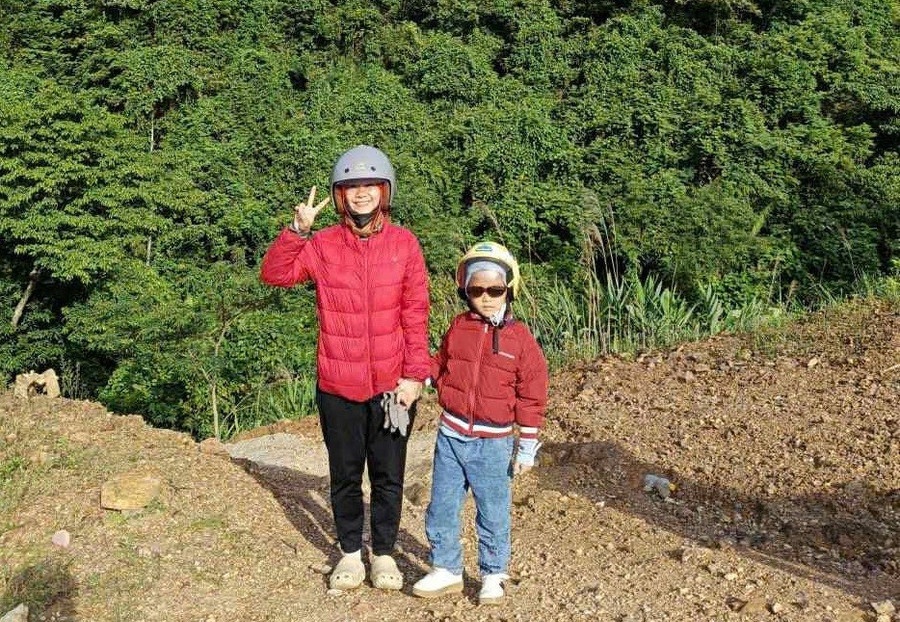
After many years of working at schools in remote areas, Ms. Tran Thi Kieu Oanh (37 years old, residing in Cam Lo commune) has gradually become accustomed to the difficulties of the place she is attached to. In the 2025-2026 school year, she continues to teach at Tria school, belonging to Huong Son Primary and Secondary Boarding School for Ethnic Minorities (Huong Phung, Quang Tri), in charge of combined classes 2-3. The school is located nearly 20km from the commune center, the road is extremely difficult, having to cross many streams.
During the rainy season, the road to school becomes even more difficult. There are sections where the water flows so fast that neither people nor vehicles can pass. Teaching at a school dozens of kilometers away from home, every Monday morning, Ms. Oanh wakes up early to prepare her things and head to school to start a new work week.
Since joining the students here, Ms. Oanh has never thought of giving up. Despite the hardships, she and her colleagues are still dedicated to staying in the village, teaching the Van Kieu children. The students are the motivation for her to continue with her job. The teachers all devote all their love to their students.
After 12 years of teaching, Ms. Oanh’s current monthly salary is about 12 million VND. This amount of money, in addition to personal expenses, she also has to take care of her family life and raise two small children, so it is still quite difficult.
Ms. Oanh said that after getting married, her parents gave her a piece of land near her house. The couple painstakingly saved every penny to build their own house. However, less than half a month after completion, her husband suddenly passed away. Before that, her husband's income was used to pay off the house loan, while her salary covered daily expenses. Now that her husband has passed away, the debt is still there, and the economic burden is even heavier.
To save some money, Ms. Oanh had to leave her youngest child with her grandparents, and bring her eldest son to work in the mountains - both convenient for studying and having his mother nearby. Only on weekends, the three of them could reunite in the small house in their hometown.

Motivation to improve teaching quality
Since 2018, along with the National Assembly's resolution on piloting a number of specific development mechanisms and policies, Ho Chi Minh City has pioneered the implementation of the policy of additional income for officials, civil servants, public employees and workers. This is an important step, demonstrating the city's determination to take care of the lives of the staff who are working day and night for the common development.
In addition, the implementation of Resolution 08/2023/NQ-HDND dated September 19, 2023 regulating the expenditure of additional income according to Resolution 98/2023/QH15 of the National Assembly on piloting a number of specific mechanisms and policies for the development of Ho Chi Minh City continues to bring new motivation.
This mechanism stipulates the coefficient of income adjustment, in which the maximum expenditure is up to 1.8 times the salary scale, rank, and position, while the total additional income expenditure does not exceed 0.8 times the basic salary fund of cadres, civil servants, public employees, and workers under the city's management.
These changes are not just a technical financial regulation, but are actually important policy tools, motivating tens of thousands of people who are directly undertaking key tasks of the city - including the team of teachers, who are silently dedicating themselves to the cause of educating people in the heart of the most dynamic urban area in the country.
Over the years, the policy of increasing income expenditure has proven to be clearly effective. For the staff, civil servants, public employees in general and teachers in particular, this income not only helps improve their lives, but also encourages their spirit, creates more peace of mind and attachment to their work. With the large number of teachers in Ho Chi Minh City - dedicated and playing a key role in improving the quality of education, this policy shows the close relationship between income, work motivation and teaching quality.
Having been involved in the education sector for nearly 30 years, Ms. Nguyen Thi Hoa - Minh Duc Secondary School (Cau Ong Lanh, Ho Chi Minh City) could not hide her emotions when mentioning the additional income policy under Resolution 08. Ms. Hoa shared that in the context of high living costs in Ho Chi Minh City, teachers' income mostly depends on their salary. "Sometimes we have to balance our expenses very closely to take care of our family and still maintain our passion for the profession," she confided.
Therefore, when the city implemented the policy of paying additional income, including teachers, Ms. Hoa said she was very excited and grateful. Currently, her monthly salary is about more than 13 million VND, in addition, the additional income is paid quarterly, depending on the results of the competition.
“If I am rated excellent during the school year, I will receive about 25 million VND per quarter; and if I am rated good, it will be about 18 million VND,” she said. For her, this is a truly meaningful income - not only supporting family expenses, but also becoming a valuable source of spiritual encouragement, helping teachers to be more steadfast, continue to stick with and contribute to the career of “cultivating people”.
Ms. Hoa said that this support not only helps the teaching staff reduce the economic burden, but is also a great spiritual encouragement. At the end of 2018, together with her husband's income and savings, she borrowed more from the Social Policy Bank to buy a Social Housing apartment, stabilizing her living after many years of renting.
“In fact, the additional income policy has given us more motivation to continue to stick with the profession, strive to innovate teaching methods, bring students good lessons and more meaningful learning experiences,” Ms. Hoa shared, adding that the additional income not only improves life, but also opens up opportunities for teachers to invest in their children, take care of their families and nurture their passion for the profession.
“The most important thing is to maintain the passion for the profession after many years of hard work in the classroom. I believe that with this policy, the teaching staff will be more secure in their work, fully devoted to the career of educating people, contributing to building a quality, humane and modern education system for the city,” she confided.
From a management perspective, Mr. Dinh Van Trinh - Principal of Nguyen Hien Secondary School (HCMC) - clearly recognized the positive impact of the additional income policy. According to Mr. Trinh, when material life improves, teachers tend to be more attached to their profession, limit the search for jobs outside the field, thereby devoting more time and enthusiasm to professional work.
“The increased income not only has material significance, but also sends a strong message from the government and society that values the efforts and dedication of teachers,” Mr. Trinh affirmed, adding that this recognition has a positive impact on the sense of responsibility, the desire to contribute and innovate teaching methods.
When conditions are better, teachers proactively apply information technology, deploy active teaching methods, organize rich experiential and extracurricular activities, thereby improving the quality of comprehensive education for students.
“From those changes, the city's education quality is constantly improved, contributing to the formation of generations of students who are dynamic, creative, and confident in international integration,” Mr. Trinh emphasized.
With a meager salary as a teacher in the highlands, and having to raise two small children alone after my husband passed away, there were times when I thought I wouldn’t have enough strength to continue. But thinking of my children who needed me to be strong, thinking of my students in the village who were waiting for each page of text, I wiped away my tears and told myself not to give up.
Late at night, when my child was fast asleep, I was still diligently preparing lessons by the light of an oil lamp, and in that moment, I felt more clearly the meaning of the profession of sowing knowledge and sowing hope. It was love, responsibility and belief in a brighter tomorrow that supported me to continue on this arduous but also very proud path. - Ms. Tran Thi Kieu Oanh
Source: https://giaoducthoidai.vn/chinh-sach-uu-dai-voi-giao-vien-khong-de-nguoi-thay-don-doc-truoc-noi-lo-com-ao-post752067.html








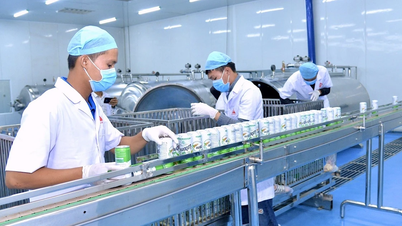



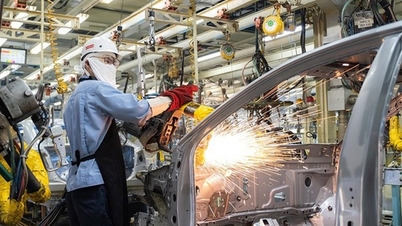










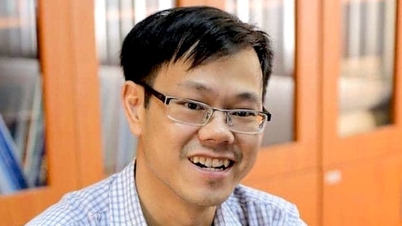


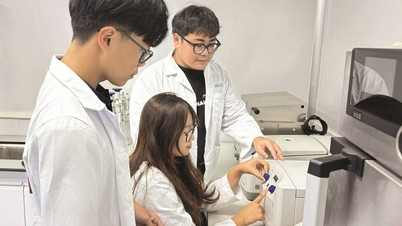






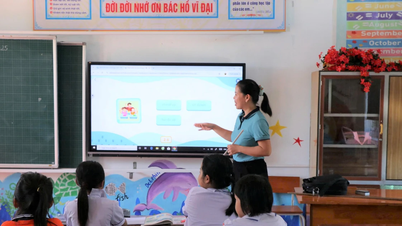
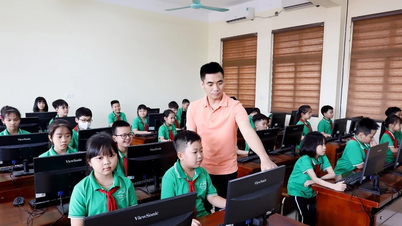

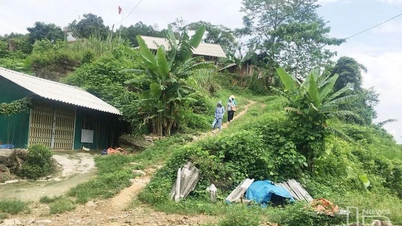
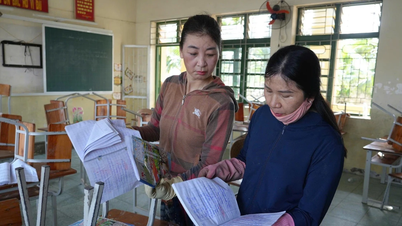














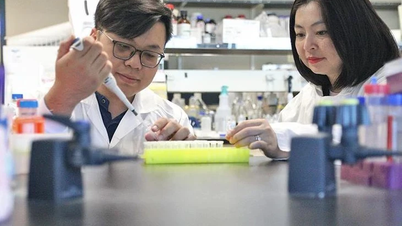






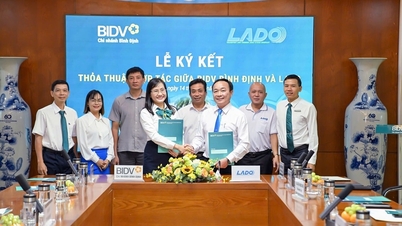





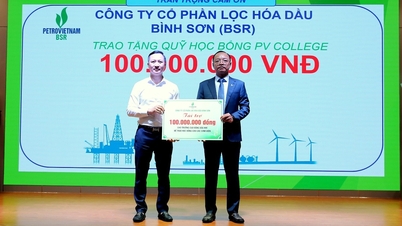











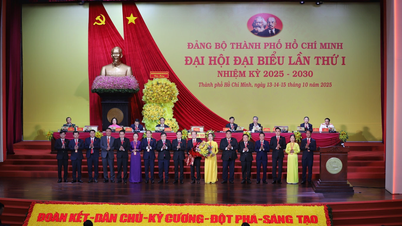







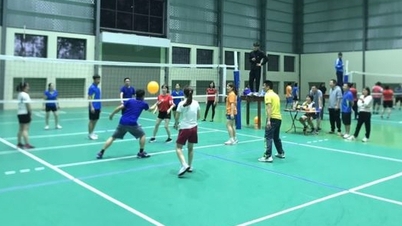




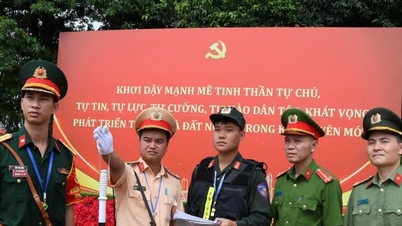






















Comment (0)